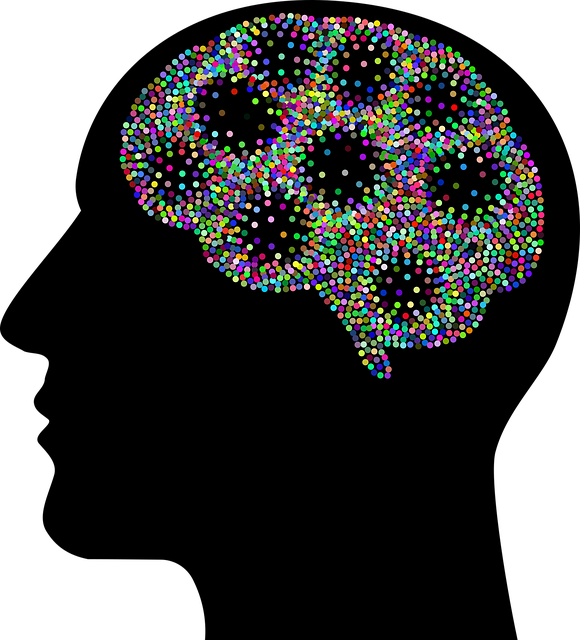Mental health policies play a pivotal role in shaping care and support for individuals with psychological conditions. Integrating evidence-based practices like Lone Tree Cognitive Behavioral Therapy (LTCBT) into these policies can significantly improve anxiety relief, emotional healing, and self-esteem. Mental health advocacy drives changes by connecting communities, healthcare providers, and policymakers, challenging stigma, and promoting LTCBT as an effective treatment. This holistic approach, addressing root causes of distress, has transformed lives. However, global access to quality mental health care faces challenges, especially in rural and underserved areas, requiring policy strategies that consider social determinants of health. Strategic advocacy, leveraging data and collaboration with organizations like Lone Tree CBT, is essential for advancing inclusive and effective mental health policies.
“Mental health policy advocacy plays a pivotal role in shaping communities’ overall well-being. This article delves into the intricate relationship between mental health policies and their profound impact on societal health. We explore successful initiatives like Lone Tree Cognitive Behavioral Therapy, highlighting effective treatment approaches. Additionally, we analyze access and equity challenges in mental healthcare, offering strategies for advocacy. By understanding policy dynamics, advocates can drive positive change, ensuring everyone has equal opportunities to heal and thrive.”
- Understanding Mental Health Policy and Its Impact
- The Role of Advocacy in Shaping Mental Health Services
- Lone Tree Cognitive Behavioral Therapy: A Case Study on Effective Treatment
- Analyzing Access and Equity Issues in Mental Healthcare
- Strategies for Successful Mental Health Policy Advocacy
Understanding Mental Health Policy and Its Impact

Mental health policies are pivotal in shaping the landscape of care and support for individuals dealing with various psychological conditions. These policies guide the allocation of resources, influence access to treatment, and ultimately impact the overall well-being of communities. At the core of such policies lies a deep understanding of mental health as a dynamic aspect of human life, encompassing a spectrum of emotional, psychological, and behavioral experiences.
In this context, Lone Tree Cognitive Behavioral Therapy (CBT) serves as an excellent example of evidence-based practice that has gained recognition for its effectiveness in treating various mental health disorders. CBT focuses on identifying and modifying negative thought patterns and behaviors, offering a structured approach to managing conditions like anxiety and depression. By integrating such therapies into policy frameworks, there is potential for significant improvements in Anxiety Relief, Emotional Healing Processes, and Self-Esteem Improvement across affected populations.
The Role of Advocacy in Shaping Mental Health Services

Advocacy plays a pivotal role in shaping mental health services and ensuring that individuals receive the support they need. It acts as a bridge between the community, healthcare providers, and policymakers, driving much-needed change in access and quality of care. Mental health advocates, including organizations and passionate professionals like those offering Lone Tree Cognitive Behavioral Therapy, work tirelessly to raise awareness about mental illness, challenge stereotypes, and promote evidence-based practices.
Through advocacy, crucial topics such as the Risk Assessment for Mental Health Professionals, Stress Reduction Methods, and Conflict Resolution Techniques gain attention. These efforts lead to improved policies that prioritize mental well-being, enhance access to therapy (e.g., Cognitive Behavioral Therapy), and foster better integration of mental health services within primary care settings. By advocating for these changes, professionals ensure that effective treatments like Lone Tree Cognitive Behavioral Therapy are readily available, ultimately benefiting individuals seeking support for their mental health journeys.
Lone Tree Cognitive Behavioral Therapy: A Case Study on Effective Treatment

Lone Tree Cognitive Behavioral Therapy (LTCBT) stands as a beacon of hope and effective treatment for mental health challenges. This therapeutic approach focuses on identifying and changing negative thought patterns and behaviors, empowering individuals to take control of their well-being. By targeting specific issues such as low self-esteem and difficulty in coping with daily stressors, LTCBT helps patients develop crucial coping skills and build resilience.
The therapy’s success lies in its holistic nature, addressing not just the symptoms but also the underlying causes. Through compassion cultivation practices, clients learn to nurture self-compassion, leading to improved emotional regulation and overall mental fortitude. This case study exemplifies how Lone Tree Cognitive Behavioral Therapy can dramatically enhance individuals’ lives, offering them tools to navigate life’s challenges with greater ease and confidence.
Analyzing Access and Equity Issues in Mental Healthcare

Access to quality mental healthcare is a significant concern worldwide, and addressing equity issues is crucial in ensuring that everyone receives the support they need. In many regions, especially rural or underserved areas, there is a shortage of specialized mental health professionals, such as Lone Tree Cognitive Behavioral Therapists. This disparity can lead to longer wait times for individuals seeking therapy, hindering their access to timely treatment.
Equity in mental healthcare also involves considering social determinants of health, including socioeconomic status, cultural background, and geographic location. Barriers like financial constraints or a lack of culturally sensitive services can prevent vulnerable populations from accessing the care they deserve. Promoting inner strength development and encouraging self-care routine establishment are strategies to empower individuals to take charge of their mental well-being. Effective communication strategies between healthcare providers and patients can also bridge these gaps, fostering understanding and ensuring everyone’s needs are met equitably.
Strategies for Successful Mental Health Policy Advocacy

Mental health policy advocacy requires a strategic approach to ensure meaningful change and improved access to care. One effective strategy is to leverage data and research to back up arguments, highlighting the impact of mental health issues on communities and the potential benefits of specific policies. Collaboration with like-minded organizations, such as those offering Lone Tree Cognitive Behavioral Therapy or Stress Management Workshops, can amplify voices and resources. By pooling expertise and networks, advocates can more effectively navigate complex policy landscapes.
Additionally, fostering strong alliances within diverse communities is vital for success. This involves understanding the unique mental health challenges faced by different groups and tailoring advocacy efforts accordingly. Incorporating self-care routine development as a core element in policy discussions promotes holistic well-being. Techniques like conflict resolution training can also facilitate productive conversations between stakeholders, ensuring collaborative problem-solving and fostering an environment conducive to positive mental health policy advancements.
Mental health policy analysis and advocacy are vital components in ensuring equitable access to quality care. By understanding the impact of policy decisions, advocating for underserved populations, and learning from innovative treatments like Lone Tree Cognitive Behavioral Therapy, we can navigate complex systems to improve mental healthcare. Analyzing access and equity issues prompts us to implement strategies that foster inclusive policies, ultimately enhancing the overall well-being of communities.












